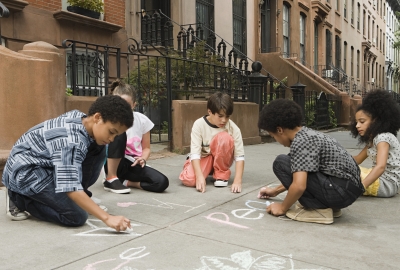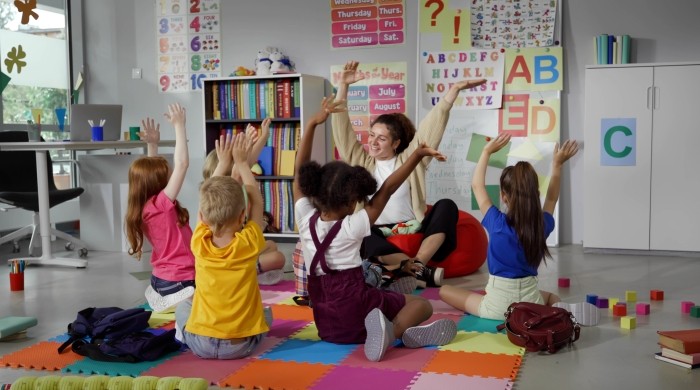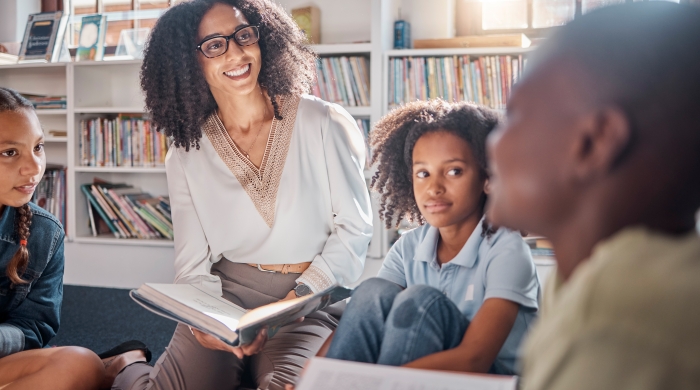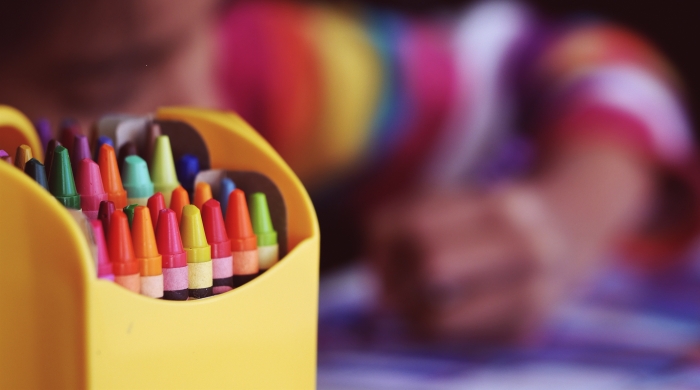
Current Projects
Completed Projects
-
Advancing Collaborative Research in Out-of-School Settings (ACROSS)
-
FRIENDS: Friendship in Racially Integrated and Ethnically Diverse Schools
-
PEERS: Teaching Practices & Peer Networks in Urban Schools
-
L2L: Links to Learning
-
Prevention of Social Aggression among Girls
-
Transitions: School Transitions & Youth Adjustment in Middle Grades
Project Overview
ACROSS is a research-practice partnership (RPP) between researchers at the Institute of Human Development and Social Change and a cross-unit team at Good Shepherd Services. Goals are to produce shared knowledge, strengthen best practices, and build evaluation capacity in diverse out-of-school settings.
Selected Publications
- Hwang, S. H. J., Cappella, E., Kieffer, M. J., & Yates*, M. (2021). “Let’s hang out!”: Understanding social ties among linguistically diverse youth in urban afterschool programs. Social Development, 1-17.
- Cappella, E., Frazier, S. L., Smith, E. P., & Hwang, S. H. J. (2020). Targeting social processes to support children with EBDs: An ecological, public health approach in out-of-school programs. In T. W. Farmer, M. Conroy, E.M.Z. Farmer, & K. Sutherland (Eds.), Handbook of Research on Emotional & Behavioral Disorders: Interdisciplinary Developmental Perspectives on Children and Youth (pp. 167-182). New York: Routledge.
- Hwang, S. H. J., Watford, J. A., Cappella, E., Yates, M., Mui, S., & Nix. J. (2020). Fostering positive youth and staff development: Understanding the roles and experiences of the afterschool workforce. Journal of Community Psychology, 48(8), 2457-2473.
- Cappella, E., Hwang, S.H.J., Kieffer, M., & Yates, M. (2017). Classroom practices and academic outcomes in urban afterschool programs: Alleviating social-behavioral risk. Journal of Emotional and Behavioral Disorders, 26(1), 42-51. doi: 10.1177/1063426617739254
- Frazier, S. L., Cappella, E., & Atkins, M. S. (2007). Linking mental health and after-school systems for children in urban poverty: Preventing problems, promoting possibilities. Administration and Policy in Mental Health and Mental Health Services Research, 34, 389-399. doi:10.1007/s10488-007-0118-y
Project Overview
The FRIENDS project investigates the child and classroom factors that influence the development of cross-race and same-race friendships at the transition to adolescence.
Selected Publications
- Cappella, E., Hughes, D., & McCormick, M. P. (2017). The hidden role of teachers: Child and classroom predictors of change in interracial friendships. Journal of Early Adolescence, 37(8), 1093-1124. doi: 10.1177/0272431616648454
- McCormick, M. P., Cappella, E., Hughes, D. L., & Gallagher, E. K. (2015). Feasible, rigorous, and relevant: Developing a measure of friendship homophily for diverse classrooms. Journal of Early Adolescence, 35, 817-851. doi: 10.1177/0272431614547051
Project Overview
The PEERS lab describes the network of peer relationships in low-income, urban, elementary school classrooms, including the role of individual students and teaching practices in the classroom social network.
Selected Publications
- Neal, J. W., Neal, Z. P., & Cappella, E. (2016). Seeing and being seen: Predictors of accurate perceptions about classmates’ relationships. Social Networks, 44, 1-8.
- Jackson, D. R., Cappella, E. & Neal, J. W. (2015). Aggression norms in the classroom social network: Contexts of aggressive behavior and social preference in middle childhood. American Journal of Community Psychology, 56, 293-306. doi: 10.1007/s101464-015-9757-4
- Cappella, E. & Hwang, S. H. J. (2015). Peer contexts in schools: Avenues toward behavioral health in early adolescence. Behavioral Medicine, 41(3), 80-89. doi: 10.1080/08964289.2015.1034646.
- Cappella, E., Kim, H. Y., Neal, J. W., & Jackson, D. (2013). Classroom peer relationships and behavioral engagement in elementary school: The role of social network equity. American Journal of Community Psychology, 52, 367-379. doi: 10.1007/s10464-013-9603-5
- Cappella, E., Neal, J. W., & Sahu, N. (2012). Children’s agreement on classroom social networks: Multi-level predictors in urban elementary schools. Merrill-Palmer Quarterly, 58, 285–313.
- Cappella, E. & Neal, J. W. (2012). A classmate at your side: Teacher practices, peer victimization, and social network affiliations. School Mental Health, 4, 81-94. doi: 10.1007/s12310-012-9072-2
- Neal, J. W., Cappella, E., Wagner, C., & Atkins, M. S. (2011). Seeing eye to eye: Predicting teacher-student agreement on classroom social relationships. Social Development, 20(2), 376-393. doi: 10.1111/j.1467-9507.2010.00582.x
Project Overview
Links to Learning (L2L) is a randomized trial of a mental health model focused on predictors of learning in urban schools. L2L activates existing school and community resources to provide school- and home-based services to the teachers and families of children with disruptive behavior disorders. The aim is to strengthen classroom and home learning contexts, and improve student behavioral and academic outcomes.
Selected Publications
- Atkins, M. S., Cappella, E., Mehta, T., Shernoff, E., & Gustafson, E. (2017). Schooling and children’s mental health: Realigning resources to reduce disparities and advance public health. Annual Review of Clinical Psychology, 13, 123-147. doi.org/10.1146/annurev-clinpsy-032816-045234
- Atkins, M. S., Shernoff, E. S., Frazier, S. L., Schoenwald, S. K., Cappella, E., Marinez-Lora, A., …, & Bhaumik, D. (2015). Re-designing community mental health services for urban children: Supporting schooling to promote mental health. Journal of Consulting and Clinical Psychology, 83(5), 839-852. http://dx.doi.org/10.1037/a0039661
- Cappella, E., Frazier, S. L., Atkins, M. S., Schoenwald, S. K., & Glisson, C. (2008). Enhancing schools’ capacity to support children in poverty: An ecological model of school based mental health services. Administration and Policy in Mental Health and Mental Health Services Research, 35, 395-409. doi: 10.1007/s10488-008-0182-y
- Atkins, M. S., Frazier, S. L., & Cappella, E. (2006). Hybrid research models: Natural opportunities for examining mental health in context. Clinical Psychology: Science & Practice, 13, 105-108. doi: 10.1111/j.1468-2850.2006.00012.x
Project Overview
This project represents the first known intervention trial to target the prevention of social aggression and the promotion of prosocial leadership among fifth grade girls.
Selected Publication
Project Overview
The Transitions lab uses a national dataset and rigorous methods to understand the trajectories, experiences, and outcomes for students who attend schools of varied grade spans in the middle grades (e.g., k-8 schools, middle schools, junior high schools).
Selected Publications
- Cappella, E., Schwartz, K., Hill, J., Kim, H. K., & Seidman, E. (2019). A national sample of 8th grade students: The impact of middle grade schools on academic and psychosocial competence. Journal of Early Adolescence, 39(2), 167-200. doi: 10.1177/0272431617735653
- Kim, H. Y., Schwartz, K., Cappella, E., & Seidman, E. (2014). Navigating the middle grades: Role of social context in middle grade school climate. American Journal of Community Psychology, 54, 28-45. doi: 10.1007/s10464-014-9659-x






